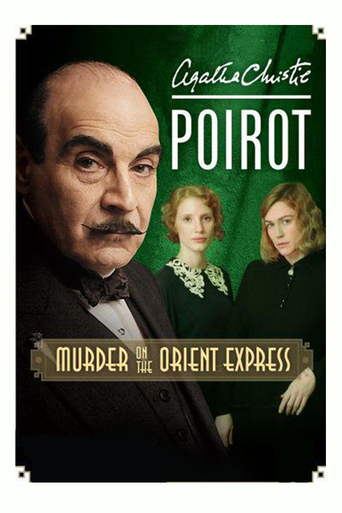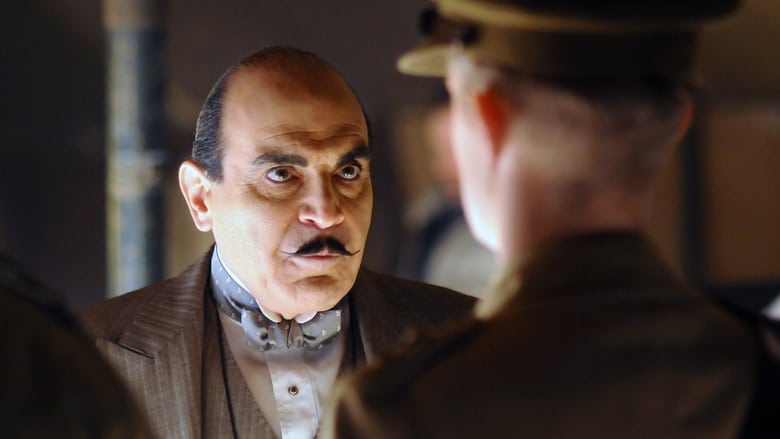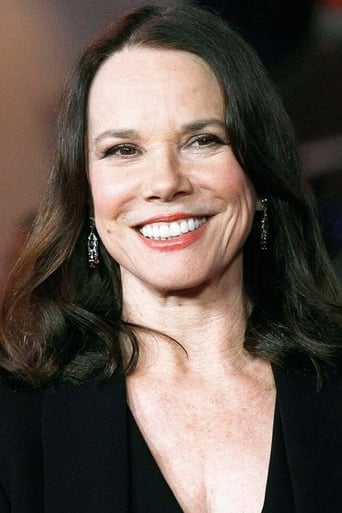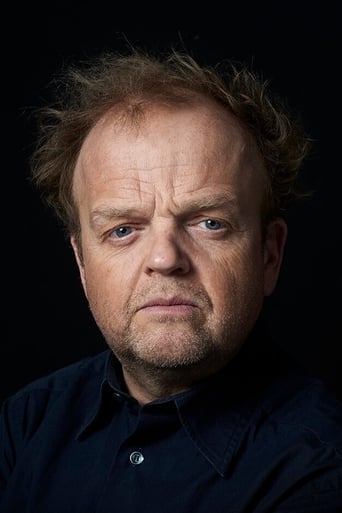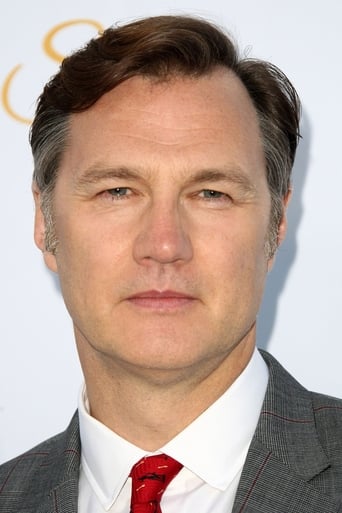Murder on the Orient Express (2010)
Poirot investigates the murder of a shady American businessman stabbed in his compartment on the Orient Express when it is blocked by a blizzard in Croatia.
Watch Trailer
Free Trial Channels
Cast


Reviews
Too much of everything
Self-important, over-dramatic, uninspired.
It really made me laugh, but for some moments I was tearing up because I could relate so much.
While it doesn't offer any answers, it both thrills and makes you think.
Considering how old the tale is, this is a perfect example of the genius of Agatha Christie. But I will be very quick to add that with the casting can make or break such a gem. And this version is very well played. Poirot(Suchet) has now earned his reputation as a great actor and it allows the viewer to really enjoy the tale. So about the tale...without giving away too much, I will say that this movie is worth the watch...every bit of it. Enjoy.
I was stunned by the emotional intensity that David Suchet brought to this role. I have always felt that the character in the novels and in the earlier seasons of the series was immutable and thereby incomprehensible - a criminal superhero who readers and viewers could count on to consistently find the murderer but who at best, is only admirable for his talents. The last scene of Murder on the Orient Express, where Poirot walks away in tears knowing that he has been forced to make a terrible decision created for me, for the first time, something real. Highest praise to the writers, producers and actors of this episode for bringing Poirot alive. Although he is aged, tired, sick, and morally conflicted, the episode creates a doorway by which Poirot becomes something reflecting the human condition in its particularity as opposed to just the trivial diversion of a static, invariable genius.
Lawrence Olivier was an actor who delivered rewards, but acting is not storytelling and sometimes the opposite is the case. He made a well regarded Hamlet and approached it as expected; he inhabited the character and let *that* being drive what was presented. If only he understood the confounding dynamic structure the author erected to allow us to have at each instant several beings inhabiting that soul. The beauty of the play is in how their layers, folds and governance stay always ahead of our ability to cleanly see the world's edges.Suchet has similar power over the detective he has played now for some time. He has inhabited the character and extended him far beyond what the author envisioned. Some of it is quite impressive and affords the intensity Suchet (or any actor) desires. But it fights the structure Christie mastered. It is a matter of personal discovery for me that I crave both Christie and Shakespeare. The former is about abstract purity, logical clarity where emotion is color only. Shakespeare uses urge as his primary quality, where urges can be spiky or smoky, weaving and stinking. He conveys reason without logic, sense without cleanliness.Christie's villains are simply wicked. The story is a matter of presenting logical impossibilities and having our detective sort them so that they are physically possible. These are logic puzzles. The characters have emotions, color and even motive as a second order. Her attention was all in the form; she could have no suspect be the murderer, or all. The narrator could be, or the murdered themselves. The more physically impossible, and the more unlikely the solution, the better. Like Holmes, Poirot would be far more interested in resolution than justice. Most editions of this story have a diagram of the coach, showing who could see what and where anyone could move. Facts as they appeared and were reshaped were all done so in this physical context. The Sidney Lumet 1974 version preserved all this while adding enough color to satisfy viewers who did not want to engage with the story, helping to sort the pieces.This version has none of that detective folding, where we work with the detective. The impossibilities of the murder are largely omitted. The culpability of the porter is necessary here but ignored. On the other hand, we have three fine locomotives. I don't know where they got that remarkable train, but it would be a great addition to any competent story.And of course we have Suchet, who seems to be far ahead of all the other production assets in defining what the story is and what it is about. I am not a fan of the notion that each character has/is one primary urge and the bumping of these urges is what drama is about. No, that doesn't work for me. But it is interesting to see the control he has, dragging all else behind to suit.The big surprise for me: Jessica Chastain! What a presence, something between Cate Blanchett and Julianne Moore and every bit as powerful. Suchet could take lessons; power is in what you give away to make your world work. A Two: has some interesting elements.
Even if you have never seen the film version from the 1970's, or read the book, this is probably the Agatha Christie story that you already sort of know the conclusion of; it is nearly one of those things that is generally known even if you are not sure why you know it. This was the case with me; I think I had seen the film, but for sure I knew who did the murder and how it was resolved – and I guess this is the case for many people coming to this 2010 television event. So the question is what would be done with a mystery that has no actual mystery for the majority of viewers?The answer is that actually the mystery is almost pushed to second billing behind making Poirot the focus of the whole film. Despite having let people get away in the past, this film portrays Poirot as having an unshakable faith in justice, and in his Catholicism; this is seen in an impacting opening sequence, and his cold acceptance of a barbaric stoning of a woman. The setup and the interviews are delivered briskly – perhaps a bit too quick to draw the viewer into the mystery, but again I think this was deliberate since the assumption was made that most fans of the series would already know where this was going – and to change such a fundamental part of the book was obviously not an option. So while the supporting characters perhaps do not make as much of a mark as one would like, Poirot himself is given plenty of time to think, to react, and to struggle. This aspect makes for an engaging film because it does open up the character by making us see the weight of his years and experiences; in some ways it is a bit sudden, but in others it is logical and links to previous films in the series.Suchet benefits greatly from this material. Previously I have enjoyed his comedic timing and light touch, but here he makes the most of a brooding character – not all of it makes sense perhaps (as mentioned, he has let others go before) but he sells the internal struggles well. The supporting cast may not have as much to do as Suchet, but ironically it is probably the starriest cast yet; Jones, Morrissey, Chastain, Hershey, Bonneville, and others all provide good presence and a sense of quality, and this does rather cover up for how little they have to do.It is not the most gripping as a film, and I think for those not familiar with the plot then it is not a good adaption to start with, simply because so much about it seems to assume you will already know the ending; however the brooding air, and the focus on a struggling and weary Poirot is what makes it work, while the famous supporting cast provide quality in the small moments they have.

